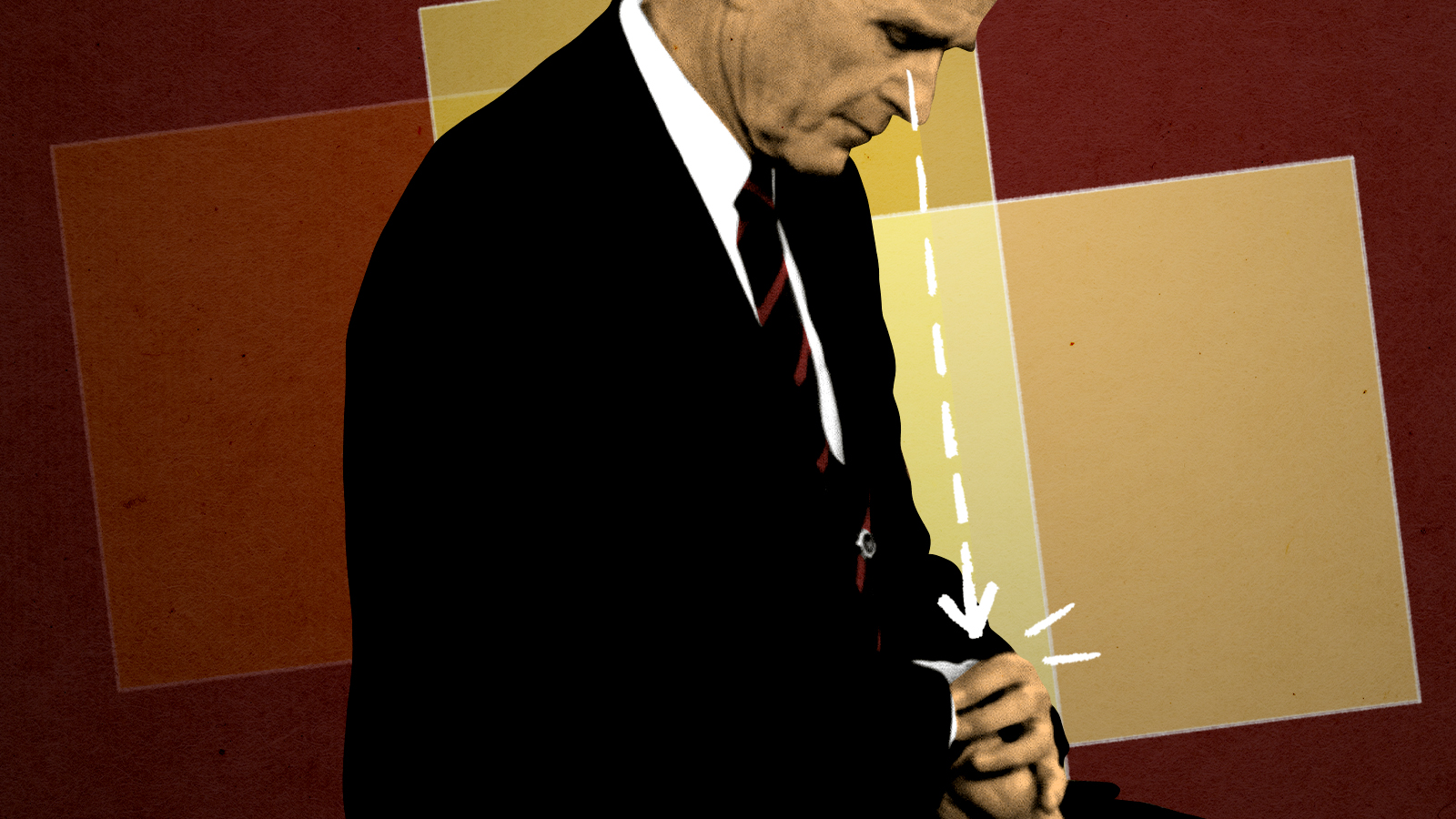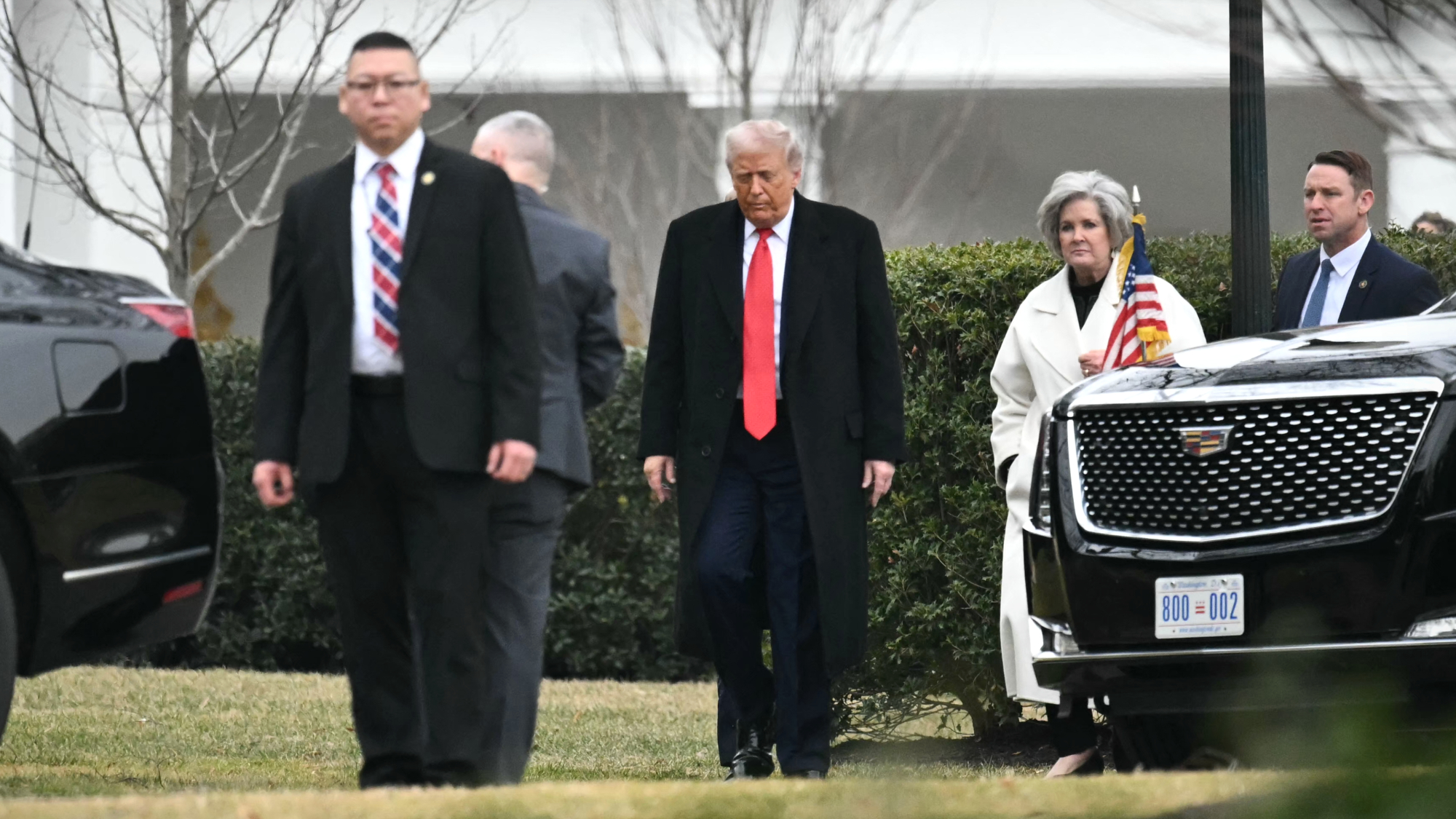Republicans are bowing out of presidential debates. Good.
Good riddance to the awkward group interview we call 'debate'


A free daily email with the biggest news stories of the day – and the best features from TheWeek.com
You are now subscribed
Your newsletter sign-up was successful
It's official. After previewing the move for months, the Republican National Committee (RNC) has announced an official boycott of the Commission on Presidential Debates (CPD), which has administered the quadrennial events since 1988. The RNC isn't completely rejecting debates, which RNC Chair Ronna McDaniel described as "an important part of the democratic process" in her statement. But it's not clear whether the CPD is willing to meet Republicans' demands for reform or Democrats are willing to bypass the commission, leaving the future of the exercise in doubt.
That's no great loss. Although they've become centerpieces of the campaign, presidential debates are a fairly recent innovation. The first series wasn't arranged until 1960. Due to the perceived risks of the exercise, demonstrated by Richard Nixon's uneasy performance in his opening encounter with John F. Kennedy, no more debates were held until 1976.
In that election, 1980, and 1984, the debates were organized by the League of Women Voters. The CPD was established by the major parties in 1987 to secure more control of the process and exclude minor candidates. Since 1988, the commission has experimented with various setups, including the "townhall" format that had then-president George H.W. Bush checking his watch in 1992. But the format has remained the same: two candidates on a stage, responding to questions posed by one a famous television news presenter.
The Week
Escape your echo chamber. Get the facts behind the news, plus analysis from multiple perspectives.

Sign up for The Week's Free Newsletters
From our morning news briefing to a weekly Good News Newsletter, get the best of The Week delivered directly to your inbox.
From our morning news briefing to a weekly Good News Newsletter, get the best of The Week delivered directly to your inbox.
We call that a "debate," but it's really not. In classic form, political debate involves speakers taking opposing positions on a fixed proposition. That's what Abraham Lincoln and Stephen Douglas did in their famous series of joint appearances leading up to the 1858 senatorial election in Illinois. For a more recent example, consider this 1978 debate staged by the PBS show Firing Line, whose participants included nominee and president-to-be Ronald Reagan.
Real debate is a showcase for speakers' knowledge, poise, and rhetorical fluency. It doesn't prove they're suited to govern. But it does indicate whether they have a clear position on some important issue and are capable of defending it.
The awkward group interview we call "debate" does little of the kind. The question-and-answer format either gives the speakers free rein to select their own topics or degenerates into tit-for-tat exchanges between participants or with the moderator.
The tendency of moderators to challenge or correct candidates, rather than merely keeping time and maintaining the flow of questions, is one of Republicans' current grievances against the CPD. But it's not a recent or specifically partisan concern. In 1988, Democrats were outraged when CNN anchor Bernard Shaw opened the second debate of the season by asking Michael Dukakis whether he would hypothetically favor the death penalty for the rapist and murderer of his wife. Rather than an invitation to the candidate to make his case, the question seemed like a set-up to make Dukakis seem out of touch.
A free daily email with the biggest news stories of the day – and the best features from TheWeek.com
The limitations of the format might be forgiven if debates were important to voters. But political science research suggests that's not the case. According to recent studies, only about 10 percent of voters choose a candidate based on debates. The vast majority make up their minds weeks or months in advance. And the relative lateness of the debates underlies another reasonable complaint about 2020 in particular: With many states extending early voting in the general election and the first debate not held until September 29, a significant portion of ballots had already been cast by the time Donald Trump and Joe Biden took the stage.
When debates make a difference, finally, their influence may have less to do with their actual content than with media narratives about them. Because candidates' statements are usually vacuous, journalists tend to emphasize superficial qualities of vocal tone, body language, or diction. It's been said that if you want to know who "won" a debate, watch with the sound turned off. That's an indictment of the whole exercise.
Maybe Republicans will patch things up with the CPD before 2024. Or maybe the parties will establish a new structure, as they did in the late 1980s. It wouldn't be any great loss, though, if we skipped debates in the upcoming cycle — and maybe forever.
If this is the end of the practice, good riddance.
Samuel Goldman is a national correspondent at TheWeek.com. He is also an associate professor of political science at George Washington University, where he is executive director of the John L. Loeb, Jr. Institute for Religious Freedom and director of the Politics & Values Program. He received his Ph.D. from Harvard and was a postdoctoral fellow in Religion, Ethics, & Politics at Princeton University. His books include God's Country: Christian Zionism in America (University of Pennsylvania Press, 2018) and After Nationalism (University of Pennsylvania Press, 2021). In addition to academic research, Goldman's writing has appeared in The New York Times, The Wall Street Journal, and many other publications.
-
 What are the best investments for beginners?
What are the best investments for beginners?The Explainer Stocks and ETFs and bonds, oh my
-
 What to know before filing your own taxes for the first time
What to know before filing your own taxes for the first timethe explainer Tackle this financial milestone with confidence
-
 The biggest box office flops of the 21st century
The biggest box office flops of the 21st centuryin depth Unnecessary remakes and turgid, expensive CGI-fests highlight this list of these most notorious box-office losers
-
 House votes to end Trump’s Canada tariffs
House votes to end Trump’s Canada tariffsSpeed Read Six Republicans joined with Democrats to repeal the president’s tariffs
-
 How are Democrats trying to reform ICE?
How are Democrats trying to reform ICE?Today’s Big Question Democratic leadership has put forth several demands for the agency
-
 Japan’s Takaichi cements power with snap election win
Japan’s Takaichi cements power with snap election winSpeed Read President Donald Trump congratulated the conservative prime minister
-
 Is Alex Pretti shooting a turning point for Trump?
Is Alex Pretti shooting a turning point for Trump?Today’s Big Question Death of nurse at the hands of Ice officers could be ‘crucial’ moment for America
-
 Halligan quits US attorney role amid court pressure
Halligan quits US attorney role amid court pressureSpeed Read Halligan’s position had already been considered vacant by at least one judge
-
 How realistic is the Democratic plan to retake the Senate this year?
How realistic is the Democratic plan to retake the Senate this year?TODAY’S BIG QUESTION Schumer is growing bullish on his party’s odds in November — is it typical partisan optimism, or something more?
-
 House approves ACA credits in rebuke to GOP leaders
House approves ACA credits in rebuke to GOP leadersSpeed Read Seventeen GOP lawmakers joined all Democrats in the vote
-
 The billionaires’ wealth tax: a catastrophe for California?
The billionaires’ wealth tax: a catastrophe for California?Talking Point Peter Thiel and Larry Page preparing to change state residency
